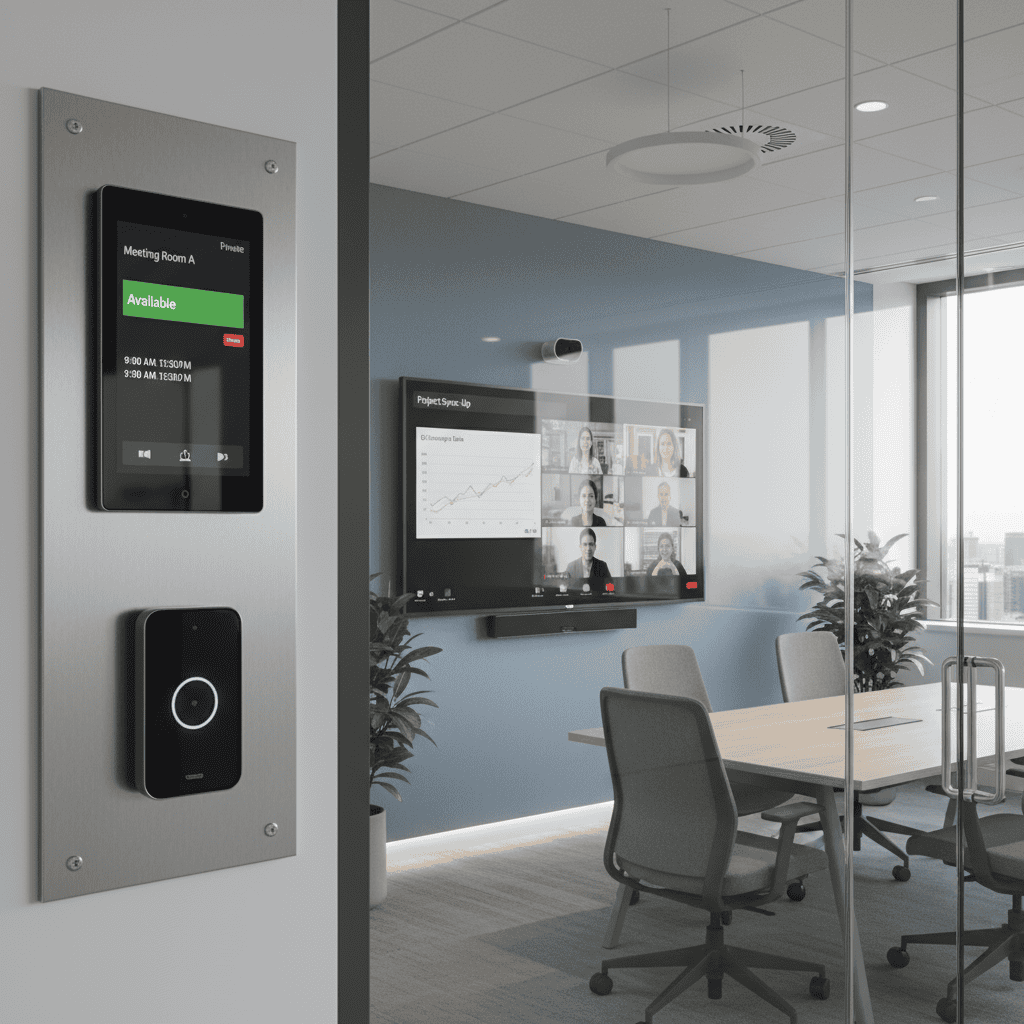VoIP vs. PBX: Which One Will You Choose?

The telephone transformed an era of communication in business and society, much like the telegraph before it. And with the advent of the internet, a new iteration of the telephone emerged: voice over internet protocol or VoIP. It replaced the functionality of conventional telephone networks and added new features — although call quality suffered in the early days when internet bandwidth wasn’t as robust.
Today, VoIP enables a host of benefits thanks to the power of software and virtualization. And call quality is absolutely top notch.
Advantages of VoiP
At a glance, VoIP delivers way more bang for your buck than PBX telephony. If you’re planning new construction, there’s almost no reason to install the infrastructure for PBX unless you have some very specific needs or limitations (you’ll learn more about this in the PBX section).
It Scales Easily
Thanks to the fact that the central nervous system for a VoIP network is a server and it runs concurrently with the internet, you can create or delete telephone instances with extreme ease. Your provider should make it simple for you to pay only for the licenses you need and flex with your headcount. This also means that if equipment fails, such as the physical telephone unit, you can quickly switch to a backup unit or redirect to a laptop.
Your Device Is Your Phone
VoIP enables you to shed the desk phone entirely if you want. Users can run the telephone interface from their laptop or smartphone using the right software. This creates amazing flexibility, especially in a world where more and more people work remotely.
Lots Of Integrations
Whether you’re running a call center, helping your outbound call team or just equipping employees with cutting edge tech, VoIP allows you to integrate with a variety of platforms, including your conference room systems This permits increased efficiency and productivity over what you could expect from a PBX system, including text messaging and voicemail transcription.
Disadvantages Of VoIP
VoIP offers a lot of improvements over PBX tech, but isn’t perfect.
When The Internet Goes Down, So Does VoIP
Internet downtime is a real thing, and with VoIP it takes your phone system down too. You’re at the mercy of your ISP and in a worse case scenario such as a severed mainline, you could be looking at days without a working telephone system (onsite anyway).
It Requires New Infrastructure
PBX systems run on CAT 3, but VoIP needs CAT 5 or better to run properly. That means paying to upgrade the structured cable in your building and all the equipment to support the VoIP network. This cost can really feel unnecessary if you have a working PBX network installed already.
Vendor Management
Not all VoIP providers are created equal. And your experience could differ vastly between them. With a PBX system it’s simple enough that it’s hard to get it wrong, especially now.
What Is PBX?
While fewer residences use conventional telephone technology nowadays, the Private Branch Exchange or PBX network remains a fixture in many commercial buildings. The cabling infrastructure is commonly CAT 3 and even delivers a form of power over Ethernet (PoE) since many telephones can run off the network without a separate power supply. PBX networks were designed to do a few things very well — it is a very tangible network and it’s limitations bear that out.
PBX works on a modular framework that requires physical representation of each phone at the main switch. If you need to add a new user, that requires connecting the right wires and verifying connectivity. It’s a much more manual technology than VoIP.
Pros Of PBX
PBX was the predominant platform for telephone communication across the US. There are good reasons for that.
It’s Simple, Sturdy And Reliable
PBX is designed to send and receive audio over a low voltage structured cable that can power the phone itself. While individual units or switches can fail, the network as a whole is very difficult to take down. It isn’t vulnerable to malware either. In order to hack your phone system, the person needs to physically penetrate the network. PBX is also a separate system from your local area network (LAN) and won’t be taken offline if something does wrong with your internet.
Cost Effectiveness
Again, thanks to its legacy status, the pricing for PBX service is very affordable.
Cons Of PBX
Sometimes you need something simple that just works. And PBX does meet that basic requirement, it just doesn’t do much else.
It’s Labor Intensive To Scale
The low-tech nature of PBX means that it doesn’t benefit from the power of virtualization. When you need to add a new line, it requires somebody to activate the line make sure the central switch can handle it. If your network is already at capacity, you’ll have to pony up for a higher capacity switch. It also requires different technical specialization to troubleshoot. Your IT team may or may not have the competency to fix the system if it breaks.
Listen And Talk, And That’s It
As the nature of work has grown more digital, it makes sense that you want all your systems to work together. A PBX system doesn’t easily integrate with modern software or the “cloud.”
Major Differences Between PBX and VoIP
PBX is the legacy technology with a long history, a wide adoption rate, and it delivers on what it promises with very little interruption. VoIP expands on traditional telephone technology and opens up new feature and efficiencies thanks to the internet. You may also be surprised to hear that they aren’t mutually exclusive.
Hybrids Are Possible
There are real-world scenarios where business operators couldn’t settle on one system and created a hybrid between their PBX and VoIP systems. While rare, there are scenarios where this could be right for you. If you’re struggling to abandon the PBX system, but want the features of VoIP, then consider working with a technology partner who can blend the two.
Choosing Which Is Right For Your Business
When good enough is good enough, PBX is a reliable option that will let you perform basic telephone communication day or night, rain or shine. It’s cost-effective and probably already installed in your building. But if you’re looking to unlock more productivity and features from your telecom network, then VoIP is the choice for you.
About i.e.Smart Systems
i.e.Smart Systems is a Houston, TX based technology integration partner that specializes in design and installation of audio/visual technology and structured cabling. For more than three decades, our team of in-house experts has partnered with business owners, architectural firms, general contractors, construction managers, real estate developers, and designers in the Houston market, to deliver reliable, scalable solutions that align with their unique goals.




